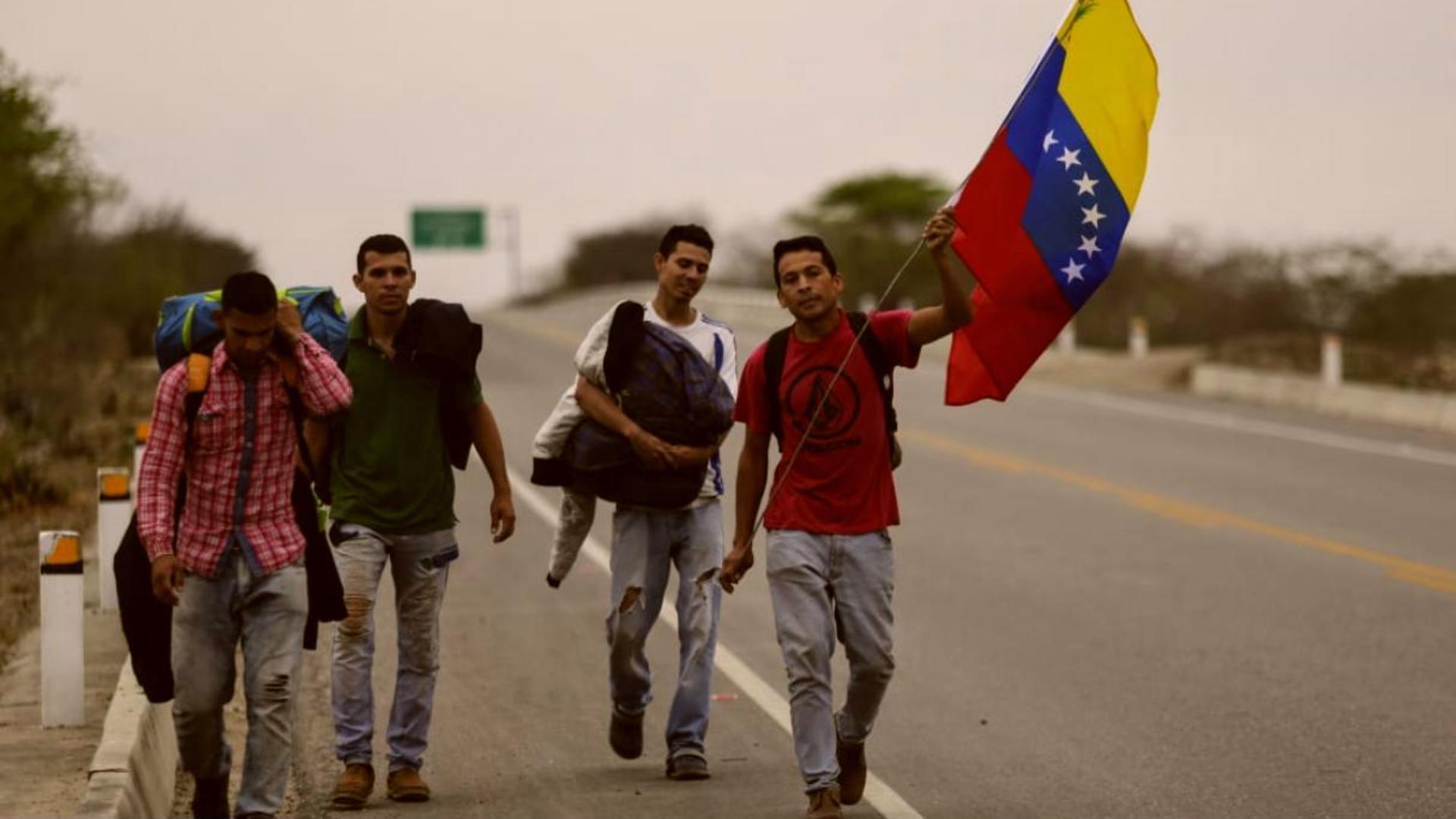
Spanish – The migratory stampede of Venezuelans has given rise to cases of forced labor in Latin America. The need to earn some income has caused immigrants to accept any wages and any work.
Countries including Brazil, Peru, and Colombia have initiated police operations and supervision to combat cases of slavery and sexual exploitation of Venezuelan migrants, while formal and informal businesses underpay these workers, taking advantage of their dire situation.
Recently, the police in Brazil deployed an operation to combat forced labor conditions of migrants in the north of the country where they are hired in the construction sector in “extremely vulnerable” conditions.
The authorities arrested one Brazilian business owner, suspected of “capturing” and “subjugating” Venezuelan migrants including teenagers. The investigations indicate that the employees would have to work 12 hours a day without a break. The employer provided them “scarce and insufficient” food, the cost of which would be deducted from their salaries.
According to the investigation, the detainee would also traffick Venezuelan women to other parts of Brazil for sexual exploitation.
However, these cases are not unique to Brazil. A study showed that 51% of the Venezuelans in Peru suffered labor exploitation. The investigation by Caritas pointed out that Venezuelans work shifts longer than 12 hours with salaries starting from 20 Sols or three dollars per day.
Mientras los venezolanos y venezolanas intentan desesperadamente abandonar el país y ansían enviar dinero a sus seres queridos, la situación se ha convertido en un caldo de cultivo para el tráfico, la esclavitud sexual, la explotación infantil… https://t.co/VFYJ5fmXuO pic.twitter.com/UWSUdoVmJe
— Sin Embargo MX (@SinEmbargoMX) August 19, 2019
An investigation by the Panamerican Foundation for Development stated, “there exists labor exploitation of Venezuelan women who work more hours and earn lesser salaries than Peruvian women. The differential treatment results in a strained relationship between the two groups.”
The Andean country faces another problem due to this exploitation: employers often fire domestic workers to hire Venezuelans and pay them lower salaries. Therefore, the government took measures to punish businesses that fire Peruvians to hire foreigners at lower wages. Colombia also prepared a decree to fight the exploitation of immigrants.
Human trafficking and prostitution
The migratory crisis has become a breeding ground for trafficking, sexual slavery, child exploitation, forced prostitution, and sexually exploitative survival of Venezuelan women and girls.
Venezuelan women in the Dominican Republic offer their services as sex workers. The same has happened in Mexico and Colombia, where some cases have been associated with murder, rape, and aggression.
Niñas y mujeres migrantes, más vulnerables
Todos los migrantes venezolanos afrontan situaciones de mayor vulnerabilidad, como condiciones de vida indignas, explotación laboral, discriminación y xenofobia. Según la ONU, en el caso de las mujeres, adolescentes y niñas. pic.twitter.com/Fs9xfhlFgo
— Ratt Dominicana (@DominicanaRatt) September 13, 2019
In Cucuta, the Colombian city bordering Tachira, Venezuela, reports indicate that about 80% of the sex workers are Venezuelan. In fact, many of them are minors who earn as little as a dollar per client.
In Peru, a study on gender-based violence carried out by the Center for Psychosocial Care (CAPS) as part of the “Integrating Horizons” project revealed that 100% of Venezuelan resident women were victims of some violence (physical, psychological, verbal, sexual harassment, street sexual harassment, xenophobia).
Last month, the Organization of American States (OAS) released a report warning that Venezuelan migrants and refugees could reach between 5.3 and 5.7 million by the end of 2019, and between 7.5 and 8.2 million by the end of 2020. Thus, as long as Chavismo remains in power, the number of Venezuelan victims of these crimes will continue to increase.
 Versión Español
Versión Español












